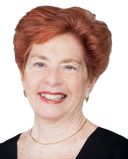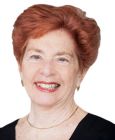Coronavirus Disease 2019
Creating a Lemonade Edge
Three examples of reworking career focus in light of the coronavirus.
Posted September 13, 2020 Reviewed by Jessica Schrader

Lemons—the real thing, citrus—are wonderful sources of vitamin C; they add terrific sparkle to various culinary adventures. But lemons as a metaphor (yes, I once owned a lemon-colored Opel that lived up to its color) … not so much. And 2020 has been filled with those latter lemons being thrown at us right and left.
From industries and organizations to individuals with big and small challenges, we’re each dealing with our own many sour-tasting “lemons.”
Practitioners in the fields of mental health counseling and, more specifically, mental performance training for athletes and other performers are experiencing a very mixed bag: For some (and their clients), it turns out that this very intimate, personal activity seems to work quite well at a distance, through various online means. Others have found their work vanishing or, at the very least, changing markedly.
I’ve recently been in contact with three colleagues, each of whom is in the midst of dealing with the changing landscape of practice. They’re creating new angles on their professional lives. They are each “making lemonade,” as it were, out of their particular lemon surfeit.
Manifesting a Dream
Dr. Megan Cannon of Allentown, PA, has offered mental performance consulting to individuals and teams, especially those in high school or college:
"When the pandemic hit, much of my typical work dried up: teams weren’t meeting, seasons were postponed or delayed, budgetary cuts meant that consulting was among the first to go. Conferences I’d been invited to speak at and orientation sessions for the beginning of the fall season were canceled.
"With the usual quieter expectations during the summer, I now had time to actually create and get ready to manifest an idea that had been percolating for the past year and a half—one that I wanted to do but that had felt overwhelming in the daily routine of my very full professional life. I thought of it as my passion project—but making it happen was something else.
"I’ve been working on creating a multi-module online mental skills program—a digital presence. The things we teach are so helpful. How do I get it to a larger audience?
"While collaborating with someone who has the technical expertise to make this happen, I’ve been learning so much! I’ve really focused on the content, of course, the most important thing. How do I translate the one-to-one individuality of the work I’ve been doing to a hypothetical audience that still needs that one-to-one explanation and experience? And how do I do that translation in a way that speaks to varied audiences—student-athletes, coaches, and parents?
"I’ve also been learning about the mechanics of developing this project: things like how to edit and how to talk to a screen.
"And I’ve done a deep dive into marketing for this kind of project. I’m learning how to do funnel webinars, how to anticipate (and “pre-respond”) to possible barriers that my potential clientele might experience. It’s meant a whole shift in thinking, from being a responsive practitioner to becoming a salesperson of sorts.
"I’m very excited: I can picture, 10 years from now, being really happy about what I’ve launched."
Gestalt (the sum is greater than its parts):
Dr. Tim Herzog of Annapolis, Maryland, has been in private practice for 12 years, working with a broad range of individuals and teams, whether offering therapy or performance-oriented work:
"Sometimes, I love the entrepreneurial part of running a business, but it can also be nerve-wracking to figure out how to maintain a predictable income. When COVID-19 hit, and I wasn’t able to use my office to see clients, I tried out various online resources I could offer, but my launch timing kept feeling a few weeks too late.
"My current project capitalizes on a need that I have recognized for years. For a long time, I have provided continuing education workshops centered on sports psychology and on biofeedback. A number of mentees have been interested in pursuing both certifications but also found the price tag daunting. I finally developed a solution that seems to interest many. Some colleagues and I are organizing dual certification groups centered on both these areas. As one of the few people in the country certified in both, my skill set is unique.
"There still are issues and challenges: cost, the fact that this dual certification means a lot of time and effort required of aspiring professionals… and the coronavirus itself: biofeedback is typically conducted in person, so figuring out how participants can safely meet with real live clients as part of their training becomes complicated. We’re exploring creative ways through which this training can occur via telehealth."
The Medical Unicorn
Dr. Jennifer Serlin of Scottsdale, AZ, has specialized in executive coaching and mental performance training with athletes, along with a practice in clinical psychology.
"I describe myself as a 'medical unicorn': I’ve had more than my fair share of medical ailments that don't follow typical trajectories. While I would much prefer not to belong to this 'club,' I've always been a believer in playing the hand you're dealt. I have utilized my insider knowledge working with performers, whether they are high-powered business professionals, surgeons, or athletes, to help them accept and address the loss/despair/anger/fear/anguish that comes with a medical issue or injury that impedes their performance.
"Much of my current work includes helping my clientele navigate the psychological impact of the global COVID-19 pandemic on their lives and their ability to perform. COVID-19, it turns out, is a unicorn of a diagnosis: Its impact is so uncertain; its presentation and its outcome—from being asymptomatic to dying—can range the full spectrum. As the pandemic continues, I’ve recognized that there will be a greater need for psychological experts who can help clients who are diagnosed with COVID recover, cope, and ultimately thrive post-diagnosis.
"The majority of people I know who got sick with COVID-19 are now fully or mostly recovered. The psychological impact of their experience can linger. And then there are the 'long-haulers,' the COVID-19 unicorns, who will need even more support, understanding, and assistance to navigate their new reality. I plan on being there for them."
What do these first-person stories say to you and your circumstances? How are you re-imagining and re-working your life in this most peculiar time? I’ll give the last word to Herzog:
During a time like the COVID-19 pandemic, it can be easy to feel powerless, a victim of circumstance. Or, with more time to pause, think, and reconfigure, it can be a time to start cultivating more of the career you want, as opposed to the career that developed on autopilot.




